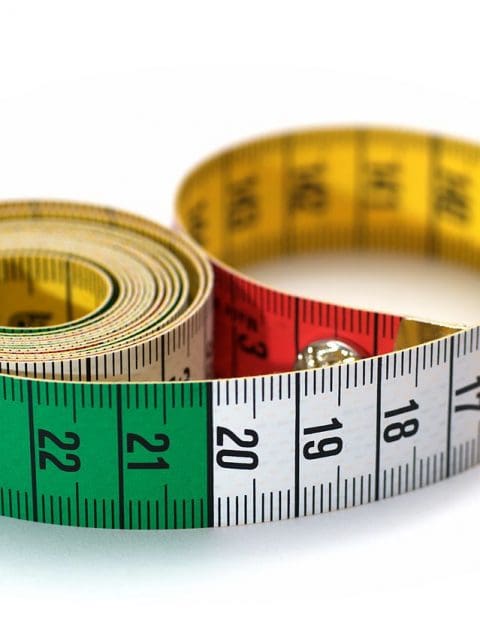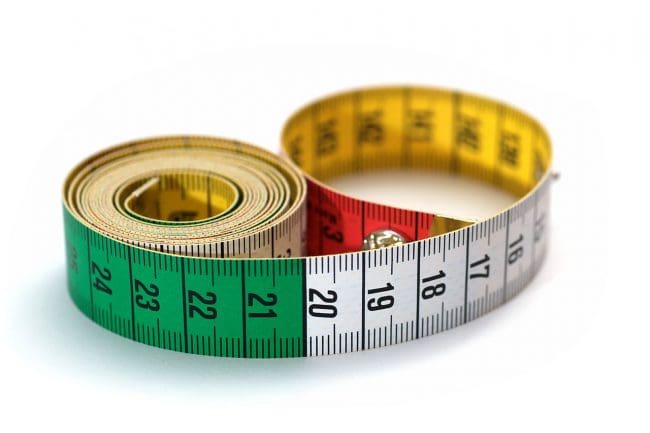“What gets measured gets managed” is the quote attributed to Peter Drucker. For all that can be criticized about this idea, it’s useful to consider in composing.
So let’s consider them! Here are some ways you can measure (or not) your work:
1: By how you feel about it
This is the worst way to measure your work. A favorite fable of mine explains why (you may have heard this before):
Once upon a time, a farmer asked his son to plow a field.
“Son,” he said. “Always make sure that you choose a point on the horizon to steer by. That way your lines will be straight and true.”
His son nodded at this advice comprehendingly, so the farmer went away to work on other chores.
But when he came back, the field was mess. Lines criss-crossed
“Son, what happened?” he asked. “Why is the field a mess?”
Measuring your work by how you feel about it is like following the rabbit. It does not give you a firm point on the horizon by which to steer.
Every artist knows this: Some days we feel like working. Other days we don’t. Some days we believe our work to be fabulous. Other days we consider ourselves failures. Thus, if you try to measure your progress by how you feel, you will never get an accurate read on the state of your project.
2: By measures written

On the surface, “measures written per day” seems like it could be a more useful metric. For film and TV music, it might well be: once you set your tempo and your hit points, you know exactly how many measures you must finish to complete the cue and send it to your orchestrator.
In my experience writing concert music, however, it’s a far more slippery metric. I find myself revising “completed” bars constantly. So then do I measure the number of bars written and the number revised? I’ve tried this, and it’s not helpful because neither gives me a good gauge on the progress of a composition.
Although measuring “bars written per day” has been less helpful for me in tracking a projects overall progress, I resonate with this secondhand advice I got from Tarik O’Regan (via Matt Nielsen): “Write at least one measure per day.”
The power of this metric is that it gets you started: this is a judgment-free bar of music. Its purpose is simply to express a musical thought — any musical thought. Just speak what’s on your mind musically. That’s what you do verbally with your friends and you don’t judge yourself, so why would you judge yourself for writing what’s on your mind?
And it turns out, it’s really hard to write just one bar of music. You’ll probably end up writing 4 or even 8. And once you do, you’ll start fussing over it. Before you know it, you’ll have at least a semi-interesting musical idea. Sometimes, this process will yield good ideas, and even occasionally great ones.
3: By time spent
I have the BYU composition seminar to thank for this metric. During one of my undergrad years, Neil Thornock had us track the number of hours we spent each week composing. The idea was that if violinists had to practice for 20 hours per week and pianists had to practice for 20 zillion hours per week (conservatively estimated), we composers should be logging at least 10 hours weekly.
So I dutifully kept track of my composing hours that semester and discovered that, as it turned out, it took me about 10 billable hours to complete a minute of finished music. Per “billable hours,” I was strict about logging this time: bathroom breaks, email, etc. all stopped the clock.
In tracking my hours since then, I’ve discovered that 10 hours seems to be a good ballpark measure for me to estimate how long a project will take. Complicated projects take longer (Glimmer, Glisten, Glow required about 12 hours per finished minute). Simpler ones go by faster (Aspen Song required less than 5 hours per finished minute). But 10 hours per minute is, overall, a good estimate.
Armed with this knowledge, I can reasonably map out a project timeline. For instance, my Barlow commission for Hub New Music has a proposed duration of 8-10 minutes. Given that will take me around 100 hours to complete, and a sustainable work week entails 15 composing hours, I estimate I’ll be able to complete it in about 6 weeks — which is great, because it’s due in about 9 weeks.
4: By milestones
The downside with even hours, though, is that even though they give me a rough idea of when the piece as a whole will be done, they still don’t create any internal benchmarks. Having milestones makes it a LOT easier to compose a piece of music. By breaking the project down into chunks, you can know when you’ve completed work for the day. You can avoid overwhelmed feelings from the project seeming too big and unknowable in scope.
Writers (and composers) often hear the advice that they should write a lot of drafts. What do those drafts look like? Honestly, artists being the creative people they are, they can take a variety of forms.
Here’s what they look like for me:
- chaos stage: developing material and artistic meaning
- outline draft: material and its ordering identified for each section
- continuity draft: every bar has something in it from start to finish
- good draft: each bar has a complete texture from start to finish
- completed draft: the whole has been polished, but not proofread
- final draft: proofread, not yet performed
- final version: rehearsing and performance issues incorporated
These milestones are useful for me, because they each represent a distinct stage of progress.
The hardest part of the process for me is the “chaos stage,” because I’ve struggled to figure out how to measure progress in that area. Which makes sense — how do you measure what is fundamentally play?
As I write my piece for Hub New Music, I’ll experiment with the “bars written” metric for this stage — the point being not to revise these bars but to come up with as many ideas and as many variations on these ideas as it takes for me to find and capture the artistic vision.
Takeaways
Having given you some insights into my process, I’m curious to know:
- What have you found works for you?
- What methods from above are you interested in trying?
- What suggestions do you have for me for how I can better handle the “chaos stage”?
Happy composing!
Don’t Miss Next Week’s Post
Sign up to stay in the loop about my music—and ideas for your own composing!


